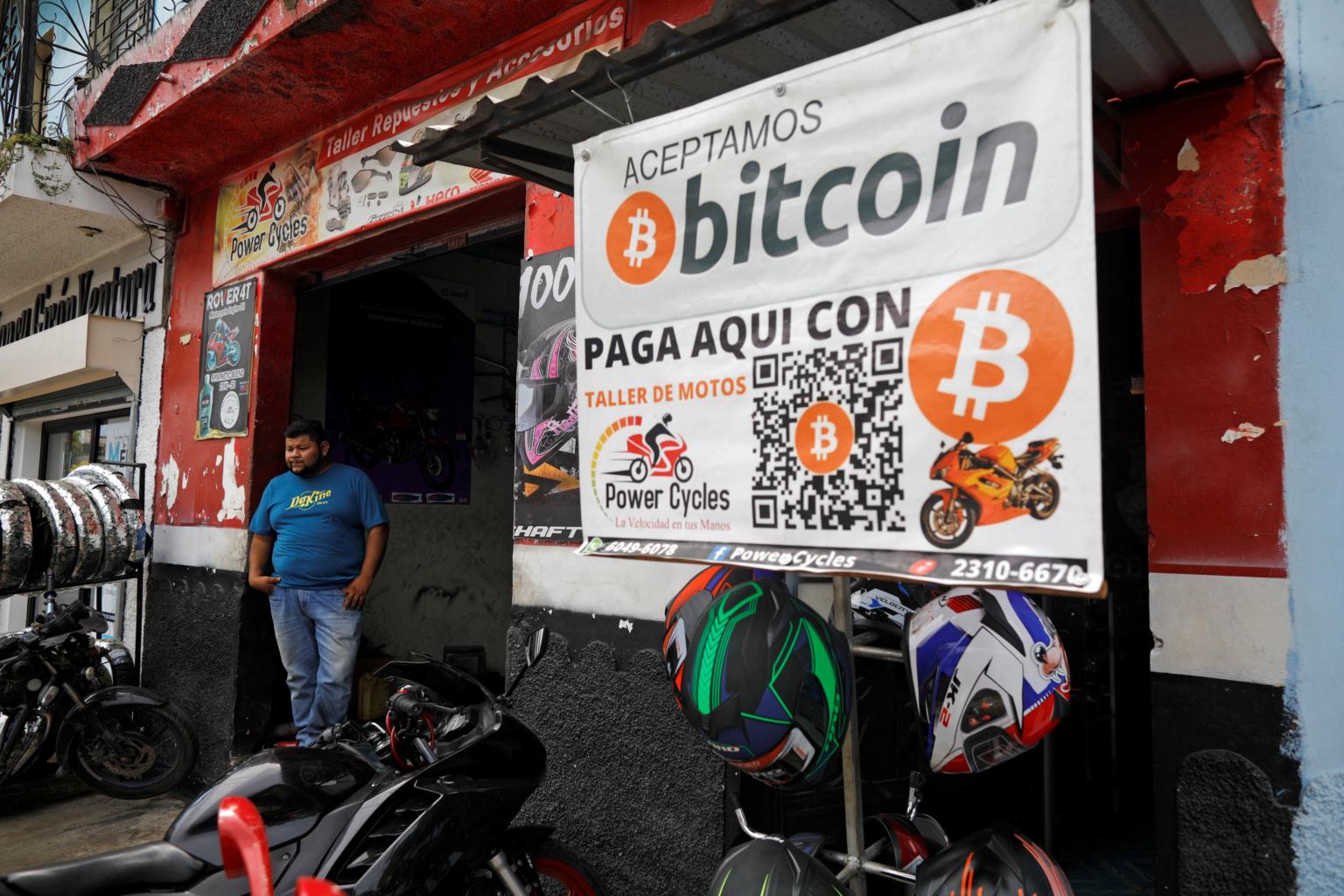Crypto crash leaves El Salvador with no easy exit from worsening crisis
Sign up now: Get ST's newsletters delivered to your inbox

El Salvador's debt stood at US$24.4 billion as of December, from US$19.8 billion at end-2019.
PHOTO: REUTERS
SAN SALVADOR (REUTERS) - El Salvador's big bet on Bitcoin, which the Central American nation has been buying since September, has soured in recent weeks as a cryptocurrency rout shaved over a third of the value of the government's holdings, Reuters calculations show.
Under populist President Nayib Bukele, a vocal cheerleader for the currency, El Salvador went all-in on Bitcoin, not just becoming the world's first country to adopt it as a legal tender but also sketching out plans for a volcano-powered crypto mining hub and plans to issue the first sovereign bond linked to the coin.
With global borrowing costs on the rise and a big debt repayment on the horizon, El Salvador has other fiscal headaches than the impact of the currency's swoon. But the crypto slump has also closed some potential off-ramps from the crisis, including the now-postponed Bitcoin bond.
"The government's financial problems are not because of Bitcoin, but they have gotten worse because of Bitcoin," said Mr Ricardo Castaneda, senior economist and country coordinator for El Salvador and Honduras at the Central American Institute for Fiscal Studies (ICEFI). For the government, he said, "Bitcoin ceased to be a solution and has become part of the problem."
Bitcoin has fallen 45 per cent since El Salvador officially adopted it in early September, and 26 per cent from its May high as crypto assets have been swept up in a risk-off investing environment.
The combined market value of all cryptocurrencies recently fell to US$1.2 trillion (S$1.67 trillion), less than half of where it was last November, based on data from CoinMarketCap.
El Salvador's debt stood at US$24.4 billion as of December, from US$19.8 billion at end-2019, after the Bukele administration allocated millions of dollars to deal with the Covid-19 pandemic and its economic effects over the past couple of years.
The International Monetary Fund estimates that the current account deficit for its remittance and external financing-reliant economy will hover near US$2 billion through 2025.
But adopting Bitcoin set the country at loggerheads with multilateral lenders like the IMF, from which Finance Minister Alejandro Zelaya said last year the government was seeking US$1.3 billion.
The fund has recommended that El Salvador ditch Bitcoin altogether. Any deal for a credit line would have to address risks including "those related to the adoption of Bitcoin as legal tender as well as risks related to economic governance", an IMF official said on Wednesday.
Ratings agencies have warned Bitcoin adoption could facilitate money laundering, and importantly, the Bitcoin risk has given bond investors another reason to demand higher returns.
As of Wednesday, they were seeking a record-high premium of 2,445 basis points over US Treasuries.
Mr Bukele's moves to centralise power, from removing all the top judges on the country's Supreme Court to muscling through authorisation to seek immediate re-election despite constitutional term limits, have helped drive the risk premium higher.
The country has to service US$329 million in interest due on its international bonds this year as well as US$800 million in a bond set to mature in January.
A debt restructuring for El Salvador is "inevitable" if the country continues with the "current policy mix," said Ms Polina Kurdyavko, head of emerging markets at BlueBay Asset Management. "Debt in El Salvador could be sustainable with the right (IMF) programme. But they have to act now."


